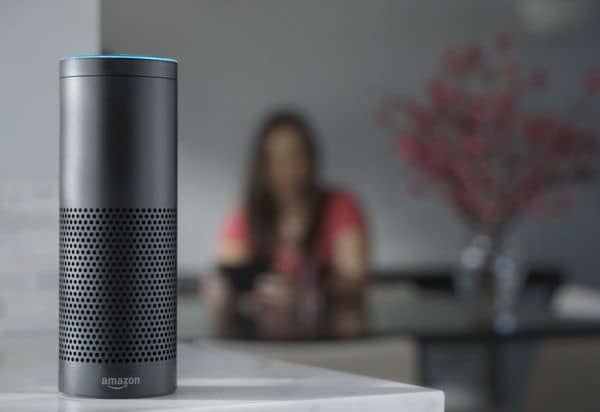
What Is Digital Dust?
March 14, 2023
The Battle of Supercomputing
March 20, 2023When it comes to technology, many people use the latest technology innovations without knowing all the ins and outs of how the specific technology works. Users download the latest apps and utilize their capabilities without asking how it works, what data it takes from their smart devices, and how it affects them. Users use smart assistants without knowing it collects data about their contacts, including nicknames, addresses, email addresses, relationships, etc. Many users don’t know that smart devices also send audio and data to the cloud every time it hears the wake word. Transparency regarding technology is essential, but users should also want the information from these companies to understand better how they are utilizing current and future technologies. We take a look at the current state of trust in technology.

What Is the Current State of Trust in Technology?
Trust in technology has been steadily growing since the early days of the internet. When the internet was still forming, people weren’t sure exactly what sites and programs could be trusted. But with protocols like HTTPS or Hypertext Transfer Protocol Secure, there is less guessing about which sites can be trusted.
The introduction of smart assistants like Amazon’s Alexa and Google Home brought a new era of connectivity to users’ homes, but even before that, Apple’s voice assistant, Siri, had already been incorporated into people’s iPhones. It seemed, in the beginning, that a good percentage of people weren’t worried about privacy and trust and were more interested in experiencing the new technology. More than a decade later, the positive outlook of these smart assistants has not only dwindled, and more people are trusting these devices less.
The growth trajectory regarding usability and technological advancements that smart assistants have had doesn’t seem enough to keep many users intrigued. And the additional concerns about trust and privacy further impact how new, existing, and potential users view the technology. About 41% of voice assistant users are concerned about trust and privacy.
The growing issues of trust in technology aren’t only solely concerning smart assistants but the entire tech industry. The Edelman Trust Barometer report for 2021 has dropped to a record low. The previous trust barometer report stated that the tech industry was the most trusted sector in the United States. The people’s trust in technology hasn’t only affected the United States. Trust in technology has reached all-time lows in 17 other countries, including the United Kingdom, China, Germany, and South Africa.

What Can the Tech Industry Do to Rebuild Trust?
Some of the concerns about trust in technology include automation and job loss, cyberattacks and hackers, and the sharing of personal data. These are all substantial issues that will continue to be a concern if the technology industry doesn’t do something about them.
There are several ways for the technology industry to rebuild the trust of its users. The first is transparency and communication of intention. When a company is open about what they are doing, its goals of why they are doing it and is transparent about how it’s going about these matters will give customers a better sense of the company and the technology as a whole.
Most technologies have a lot of moving parts. Let’s go back to the example of smart assistants. For Amazon’s Alexa, Google Assistant, Apple’s Siri, and Microsoft’s Cortana to work—a lot of data is being collected to help the assistants get to do their job. The data that is being collected can include your name, time zone, address, phone number(s), payment information, age, personal interests stored on your profiles, personal description, location of your devices, location history, and places you’ve been, routes you’ve taken, your IP address, your synced email, your calendar, an acoustic model of your voice, and more.
Most people might not know that all of this information is being collected and that in some cases, it’s being shared or even sold to other companies. While most of this information is probably somewhere in the “fine print”—users could potentially trust technology companies more if they were being more transparent.

Why Trust in Data Centers for Your Data Storage Needs?
Data centers can offer customers more than just storage. A professional data center requires specific certifications and standards that are difficult to replicate in an in-house data center operation. Colocation America prides itself on keeping up to date with all of the data center certifications, standards, and security protocols that keep our customers’ online and data safe from anything.
These certifications allow our data center to keep up with the rapid and always-changing trends in the world of technology. When the latest or advanced technologies enter the market, new legislation, codes of conduct, or competition pushes toward innovation, Colocation America is always ready to bring its customers into the future.
Our 22 data centers have the best certification standards that give current and future customers peace of mind on how their data is stored. Colocation America’s certifications include HIPAA, PCI DSS, SSAE 18, SOC, and ISO 27001. Our data centers also adhere to the standards set by the Uptime Institute. We also provide full specifications for all of our data centers.
As a trusted data center provider, we are responsible for designing, implementing, operating, and maintaining effective controls within Colocation America’s system. We ensure our service commitments and system requirements are relevant to security, availability, and confidentiality. We have evaluated the effectiveness of the controls within the system to ensure service commitments and system requirements are achieved based on the trust services criteria.
Our data centers have everything you need to help your business flourish, and we are transparent about all of our data center certifications, standards, and how your data is stored. We also break down additional reasons why you should choose Colocation America for your Los Angeles colocation data center as well as our other data centers in various communication hubs around the nation. Connect with us today for more information.
